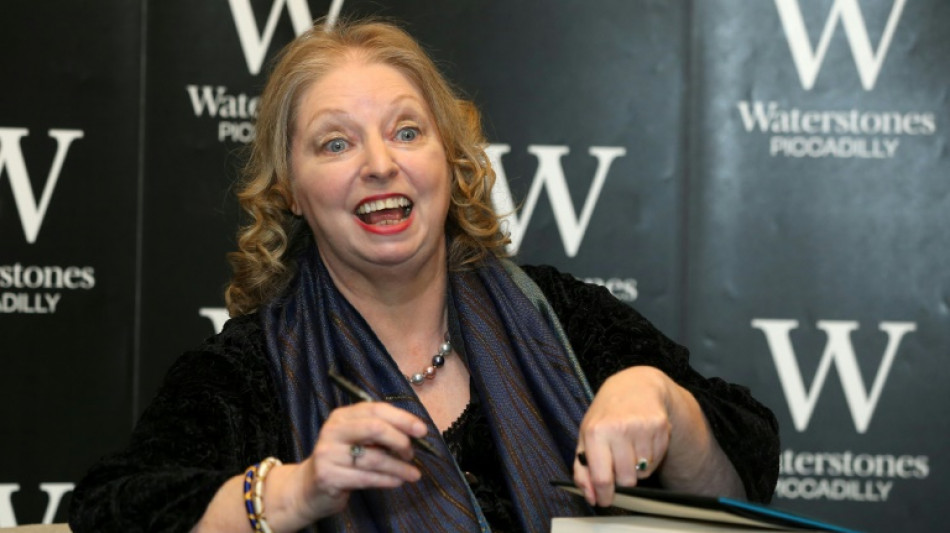
-
 Pakistan to play India at T20 World Cup after boycott called off
Pakistan to play India at T20 World Cup after boycott called off
-
Emergency measures hobble Cuba as fuel supplies dwindle under US pressure

-
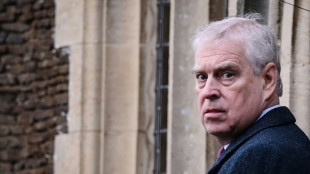 UK king voices 'concern' as police probe ex-prince Andrew over Epstein
UK king voices 'concern' as police probe ex-prince Andrew over Epstein
-
Spanish NGO says govt flouting own Franco memory law
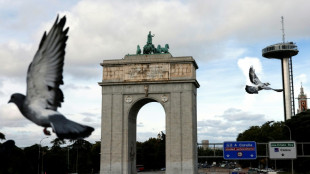
-
 What next for Vonn after painful end to Olympic dream?
What next for Vonn after painful end to Olympic dream?
-
Main trial begins in landmark US addiction case against Meta, YouTube

-
 South Africa open T20 World Cup campaign with Canada thrashing
South Africa open T20 World Cup campaign with Canada thrashing
-
Epstein accomplice Maxwell seeks Trump clemency before testimony
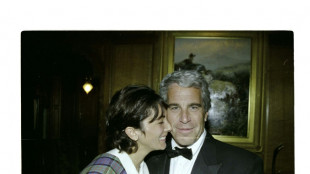
-
 Discord adopts facial recognition in child safety crackdown
Discord adopts facial recognition in child safety crackdown
-
Some striking NY nurses reach deal with employers

-
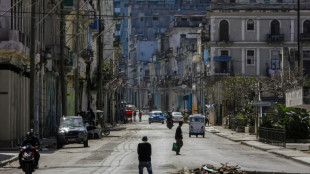 Emergency measures kick in as Cuban fuel supplies dwindle under US pressure
Emergency measures kick in as Cuban fuel supplies dwindle under US pressure
-
EU chief backs Made-in-Europe push for 'strategic' sectors

-
 Machado ally 'kidnapped' after calling for Venezuela elections
Machado ally 'kidnapped' after calling for Venezuela elections
-
Epstein affair triggers crisis of trust in Norway
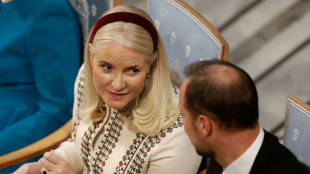
-
 AI chatbots give bad health advice, research finds
AI chatbots give bad health advice, research finds
-
Iran steps up arrests while remaining positive on US talks

-
 Frank issues rallying cry for 'desperate' Tottenham
Frank issues rallying cry for 'desperate' Tottenham
-
South Africa pile up 213-4 against Canada in T20 World Cup

-
 Brazil seeks to restore block of Rumble video app
Brazil seeks to restore block of Rumble video app
-
Gu's hopes of Olympic triple gold dashed, Vonn still in hospital

-
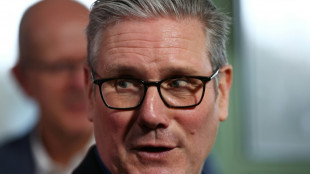 Pressure mounts on UK's Starmer as Scottish Labour leader urges him to quit
Pressure mounts on UK's Starmer as Scottish Labour leader urges him to quit
-
Macron backs ripping up vines as French wine sales dive
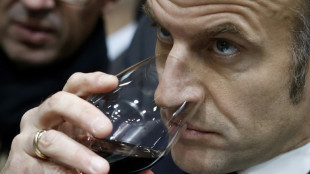
-
 Olympic freeski star Eileen Gu 'carrying weight of two countries'
Olympic freeski star Eileen Gu 'carrying weight of two countries'
-
Bank of France governor Francois Villeroy de Galhau to step down in June
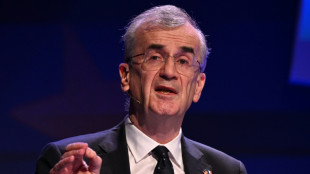
-
 Tokyo stocks strike record high after Japanese premier wins vote
Tokyo stocks strike record high after Japanese premier wins vote
-
'I need to improve', says Haaland after barren spell

-
 Italian suspect questioned over Sarajevo 'weekend snipers' killings: reports
Italian suspect questioned over Sarajevo 'weekend snipers' killings: reports
-
Von Allmen at the double as Nef seals Olympic team combined gold

-
 Newlyweds, but rivals, as Olympic duo pursue skeleton dreams
Newlyweds, but rivals, as Olympic duo pursue skeleton dreams
-
Carrick sees 'a lot more to do' to earn Man Utd job

-
 Olympic star Chloe Kim calls for 'compassion' after Trump attack on US teammate
Olympic star Chloe Kim calls for 'compassion' after Trump attack on US teammate
-
'All the pressure' on Pakistan as USA out to inflict another T20 shock

-
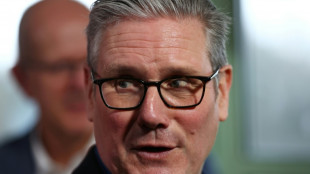 Starmer vows to remain as UK PM amid Epstein fallout
Starmer vows to remain as UK PM amid Epstein fallout
-
Howe would 'step aside' if right for Newcastle

-
 Sakamoto wants 'no regrets' as gold beckons in Olympic finale
Sakamoto wants 'no regrets' as gold beckons in Olympic finale
-
What next for Vonn after painful end of Olympic dream?

-
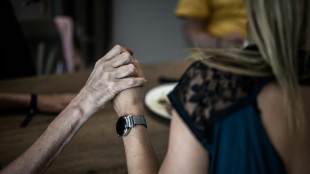 Brain training reduces dementia risk by 25%, study finds
Brain training reduces dementia risk by 25%, study finds
-
Gremaud ends Gu's hopes of Olympic treble in freeski slopestyle

-
 Shiffrin and Johnson paired in Winter Olympics team combined
Shiffrin and Johnson paired in Winter Olympics team combined
-
UK's Starmer scrambles to limit Epstein fallout as aides quit
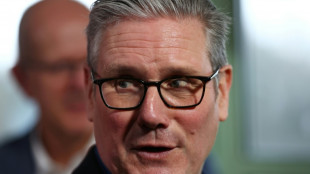
-
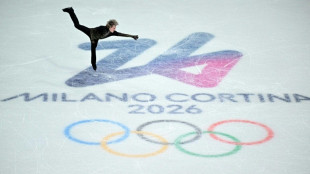 US skater Malinin 'full of confidence' after first Olympic gold
US skater Malinin 'full of confidence' after first Olympic gold
-
Sydney police pepper spray protesters during rallies against Israeli president's visit

-
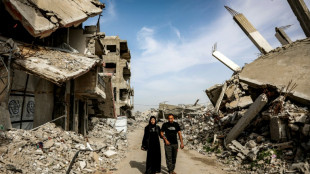 Israel says killed four militants exiting Gaza tunnel
Israel says killed four militants exiting Gaza tunnel
-
Franzoni sets pace in Olympic team combined

-
 Captain's injury agony mars 'emotional' Italy debut at T20 World Cup
Captain's injury agony mars 'emotional' Italy debut at T20 World Cup
-
Family matters: Thaksin's party down, maybe not out

-
 African players in Europe: Ouattara fires another winner for Bees
African players in Europe: Ouattara fires another winner for Bees
-
Pressure grows on UK's Starmer over Epstein fallout
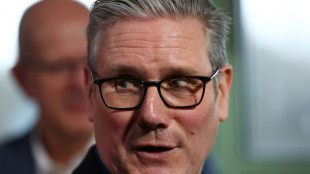
-
 Music world mourns Ghana's Ebo Taylor, founding father of highlife
Music world mourns Ghana's Ebo Taylor, founding father of highlife
-
HK mogul's ex-workers 'broke down in tears' as they watched sentencing

| CMSC | 0.06% | 23.585 | $ | |
| SCS | 0.12% | 16.14 | $ | |
| NGG | -0.11% | 87.965 | $ | |
| BCC | -0.9% | 90.22 | $ | |
| GSK | -1.95% | 59.08 | $ | |
| BTI | -2.97% | 60.99 | $ | |
| RYCEF | 2.65% | 17.34 | $ | |
| BCE | 1.28% | 25.405 | $ | |
| RIO | 3.24% | 96.54 | $ | |
| AZN | -2.53% | 188.26 | $ | |
| BP | 0.73% | 39.295 | $ | |
| RELX | -0.12% | 29.345 | $ | |
| JRI | -1.01% | 12.84 | $ | |
| VOD | 2.36% | 15.475 | $ | |
| CMSD | 0.08% | 23.97 | $ | |
| RBGPF | 0.12% | 82.5 | $ |

Hilary Mantel: bringing ghosts to life
Hilary Mantel, whose death was announced on Friday, communed with ghosts throughout her life: the ghosts from history that stalked her fiction, the ghosts of her Irish Catholic ancestors and the ghosts of her unborn children.
The British author's accomplishments, however, were very real.
There were midnight queues outside bookshops for her last novel, the conclusion to her trilogy about the tumultuous life of Thomas Cromwell, the scheming chief minister to King Henry VIII.
Mantel, who was 70, became the first British writer, and first woman, to win the prestigious Booker Prize twice with the first two novels in the series, "Wolf Hall" and "Bring Up the Bodies".
The third, "The Mirror & the Light", was tipped by many critics to make an unprecedented treble but missed out. Mantel took the judges' snub in good grace.
"I think a book is born into a cultural moment and any book is carried on the cultural tide, so we just have to acknowledge that," she told the Sydney Morning Herald in 2020.
Mantel herself swam against the tide since publishing her first novel in 1985, "Every Day Is Mother's Day", a darkly comic story about a mentally disabled girl and her terrifying mother, who communes with the undead.
It drew on Mantel's post-university stint as a social worker but was not the first novel she had written.
That manuscript was drafted in the 1970s but only emerged in 1992 as "A Place of Greater Safety", set in the years leading up to the French Revolution of 1789, and its blood-soaked aftermath.
Much of her literary oeuvre dwelt on the historical or the supernatural. But Mantel did not shy away from attacking contemporary issues, including the British royalty and former prime ministers Margaret Thatcher and Boris Johnson.
Interviewed by Italian newspaper La Repubblica in September 2021, Mantel said she planned to take up Irish citizenship, "to become a European again" after Brexit.
- 'Female, northern and poor' -
Born as Hilary Thompson into a family of Irish descent, Mantel grew up in the austere 1950s bearing the three disadvantages of being "female, northern and poor", as recounted in her 2003 memoir "Giving Up the Ghost".
The book describes a girl of otherworldly imagination growing up in a Derbyshire mill village and schooled by doctrinaire Catholic nuns.
The writer described losing her own faith by the age of 11, when she saw her father for the last time.
By then, her mother's lover had been sharing the family home for four years, along with her father. Mantel was the surname of the new "stepfather", although he and her mother never married.
Hilary Mantel went on to study law at the London School of Economics but transferred in 1971 to Sheffield University to be nearer her fiance Gerald McEwen, who was studying geology in the limestone-rich region.
In her memoir, she recalled that one of her tutors at Sheffield "was a bored local solicitor who made it plain that he didn't think women had any place in his classroom".
Misogyny was evident towards the end of her studies when Mantel developed crippling pains in her abdomen and legs. Doctors dismissed her as "hysterical, neurotic, difficult", and placed her on mind-altering drugs.
- Global following -
Years later, by now living in Botswana where McEwen had swapped limestone for diamond exploration, Mantel found her symptoms laid out in a medical textbook and was finally able to get doctors to take the condition seriously.
In London, over Christmas 1979, Mantel had surgery for endometriosis, a disorder in the blood cells of the uterus.
The procedure left her infertile and hormone treatment led to rapid weight gain, twin traumas she describes in harrowing detail in the memoir.
She imagines life with the daughter she would never have, named Catriona, the most heart-rending ghost of the many spectres that populate her 12 novels.
Mantel and McEwen divorced in 1980 but remarried two years later and relocated to Saudi Arabia for his geology work.
A later short story evoked a miserable time, as an expatriate wife enduring cloistered life in the conservative Islamic state.
Liberated from that experience, she wrote in her memoir of being on a quest to unearth the truth "in the accumulation of dusty and broken facts, in the cellars and sewers of the human mind".
Mantel's quest continued, with the accumulation of tangible awards and a global readership. The Wolf Hall Trilogy has so far been translated into 41 languages, with sales of more than five million.
A.Rodriguezv--AMWN
